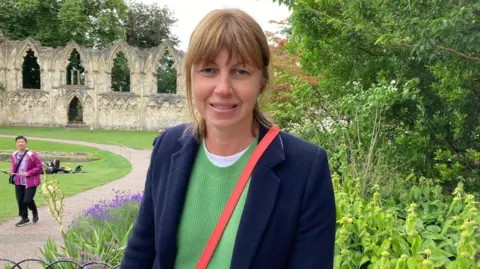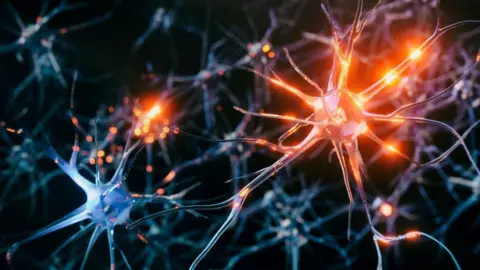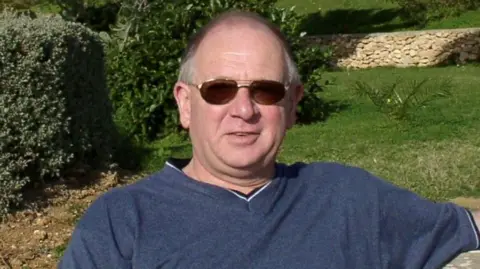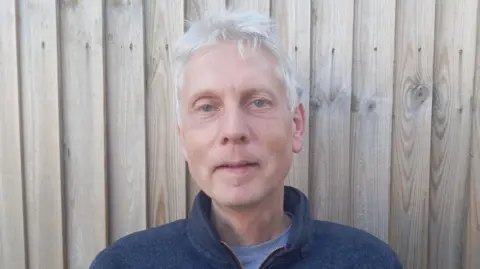What it is like to live with Parkinson's
 Alison Anderson
Alison AndersonFrom nightmares to severe backache, three people with Parkinson's have shared their symptoms and experiences to offer insight into what it is like to live a day in their shoes.
The progressive disorder affects the brain, nervous system, and muscle control. It is the fastest growing neurological condition in the world, with about 153,000 people in the UK living with the condition.
Alison Anderson from Cheltenham, Gloucestershire, is one of those people. Like many, she awakes at about 08:00 to the twinkling crescendo of her morning alarm.
But unlike many others, this sound shatters the silence six more times throughout her day, reminding her to take her medication.
The slightest delay in her dosage, known as off-time, risks her symptoms surfacing and her experiencing anything from tremors to memory difficulties or poor balance.
'It's frustrating'
"When this happens, even the simplest of tasks becomes challenging," she said.
"I become mentally and physically slower, I can't think straight and struggle to speak without forgetting what I'm trying to say.
"It's frustrating, at times embarrassing, and it interferes with pretty much everything I'm trying to do," she said.
 Getty Images
Getty ImagesMs Anderson was diagnosed with the condition in 2015, which at the time came as a "devastating" blow.
But over the years, she has gradually "learned to adjust" to her symptoms, and even discovered a "slower pace of life" has made her more appreciative.
The 54-year-old has found a close-knit community comprised of four other women with the disease, whom she meets with every week for coffee, cake and a catch-up.
"Because we are all facing similar challenges, we are uniquely placed to help and support each other," she said.
"We also encourage, and at times, coerce each other into trying new things and keeping active. I try to enjoy life and live it to the fullest."
 Glyn Evans
Glyn EvansOther symptoms of Parkinson's can include sensory issues, voice changes, facial masking - where people experience a reduced ability to express emotions through facial movements - and sleep difficulties.
As Glyn Evans from Lydney explains: "You get distressing dreams most nights. I wake up every couple of hours, sometimes in a ball of sweat."
Mr Evans was diagnosed with Parkinson's tremor after noticing a slight shake in his right hand several years ago.
This quickly progressed to jaw and tongue tremors, stiffness, severe backache and loss of balance.
The 78-year-old said life continues regardless, and he has "found ways to cope" with the condition.
"What would I say to people about my condition? Don't feel sorry for me," he said.
"Try to understand that Parkinson's has changed my life but it won't kill me."
 Michael Pearce
Michael PearceMichael Pearce, from Hardwicke, told the BBC his symptoms manifest in the form of fatigue, mobility issues, tremors and urinary incontinence.
"I'm very self-conscious at times, frustrated and uncertain," he said. "But only once or twice did I get angry about it. It's nobody's fault, it just is.
"The other big thing for me was I stopped being creative. I used to write songs and my sense of humour diminished. Thankfully, these are coming back."
Mr Pearce said prescribed medication has since improved his quality of life, but true acceptance of his diagnosis came from within.
"I endeavour not to worry about an unknown future," he explained.
"Parkinson's has been a wake up call about life's priorities, not taking people and things for granted.
"This definitely helped in my case, keeping me grounded and philosophical about the situation. I express gratitude for the things I can still do."
Follow BBC Gloucestershire on Facebook, X, and Instagram. Send your story ideas to us on email or via WhatsApp on 0800 313 4630.
